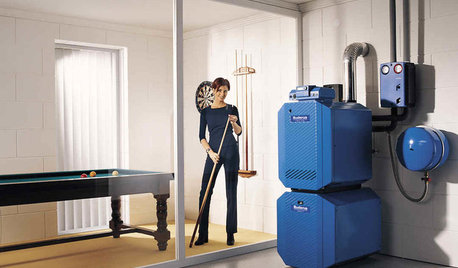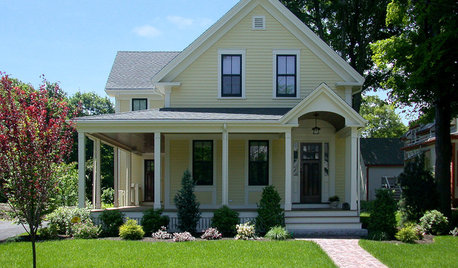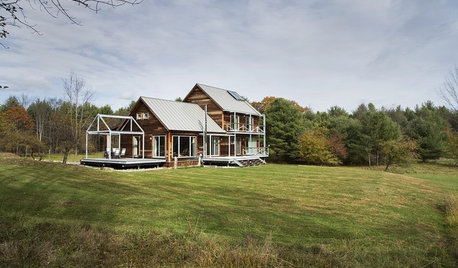In Forclosure help w/ winterizing-have old water heated registers
brutam
16 years ago
Related Stories

HOUSEKEEPING5 Steps to Improve Your Heating System Now
Increase your heater's efficiency and safety for lower energy bills and greater peace of mind this winter
Full Story
FLOORSIs Radiant Heating or Cooling Right for You?
Questions to ask before you go for one of these temperature systems in your floors or walls (yes, walls)
Full Story
GREAT HOME PROJECTSHow to Add a Radiant Heat System
Enjoy comfy, consistent temperatures and maybe even energy savings with hydronic heating and cooling
Full Story
ORGANIZINGDo It for the Kids! A Few Routines Help a Home Run More Smoothly
Not a Naturally Organized person? These tips can help you tackle the onslaught of papers, meals, laundry — and even help you find your keys
Full Story
SELLING YOUR HOUSE10 Low-Cost Tweaks to Help Your Home Sell
Put these inexpensive but invaluable fixes on your to-do list before you put your home on the market
Full Story
BATHROOM DESIGNKey Measurements to Help You Design a Powder Room
Clearances, codes and coordination are critical in small spaces such as a powder room. Here’s what you should know
Full Story
SMALL SPACESDownsizing Help: Where to Put Your Overnight Guests
Lack of space needn’t mean lack of visitors, thanks to sleep sofas, trundle beds and imaginative sleeping options
Full Story
HOUZZ TOURSMy Houzz: 38 Years of Renovations Help Artists Live Their Dream
Twin art studios. Space for every book and model ship. After four decades of remodeling, this farmhouse has two happy homeowners
Full Story
GREEN BUILDINGInsulation Basics: Heat, R-Value and the Building Envelope
Learn how heat moves through a home and the materials that can stop it, to make sure your insulation is as effective as you think
Full Story
GREEN BUILDINGHouzz Tour: Passive House in Vermont Slashes Heating Bills
Its ecofriendly, low-maintenance design leaves a family with more time to relax and enjoy the weekend home
Full StoryMore Discussions








baymee
kframe19
Related Professionals
Benicia Solar Energy Systems · Carpinteria Solar Energy Systems · Elizabeth Solar Energy Systems · Little Ferry Solar Energy Systems · Inver Grove Heights Solar Energy Systems · Berkley Home Automation & Home Media · Damascus Home Automation & Home Media · Detroit Home Automation & Home Media · Evanston Home Automation & Home Media · Newport Beach Home Automation & Home Media · Oak Lawn Home Automation & Home Media · Elgin Fireplaces · League City Fireplaces · Leander Fireplaces · Oak Hill Fireplacesdon21
brickeyee
terribletom
baymee
brickeyee
bus_driver
deweymn
daesaflgatorfan